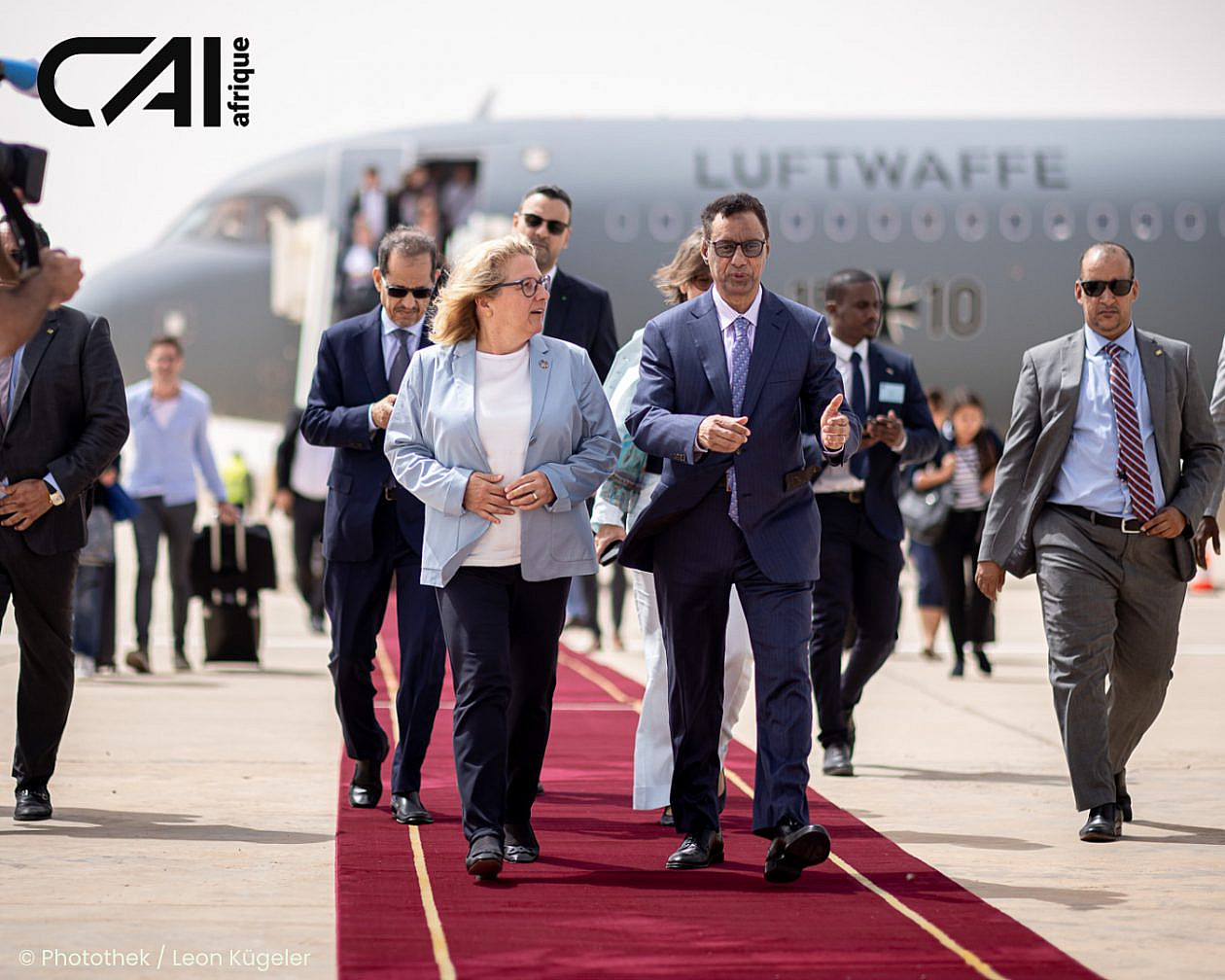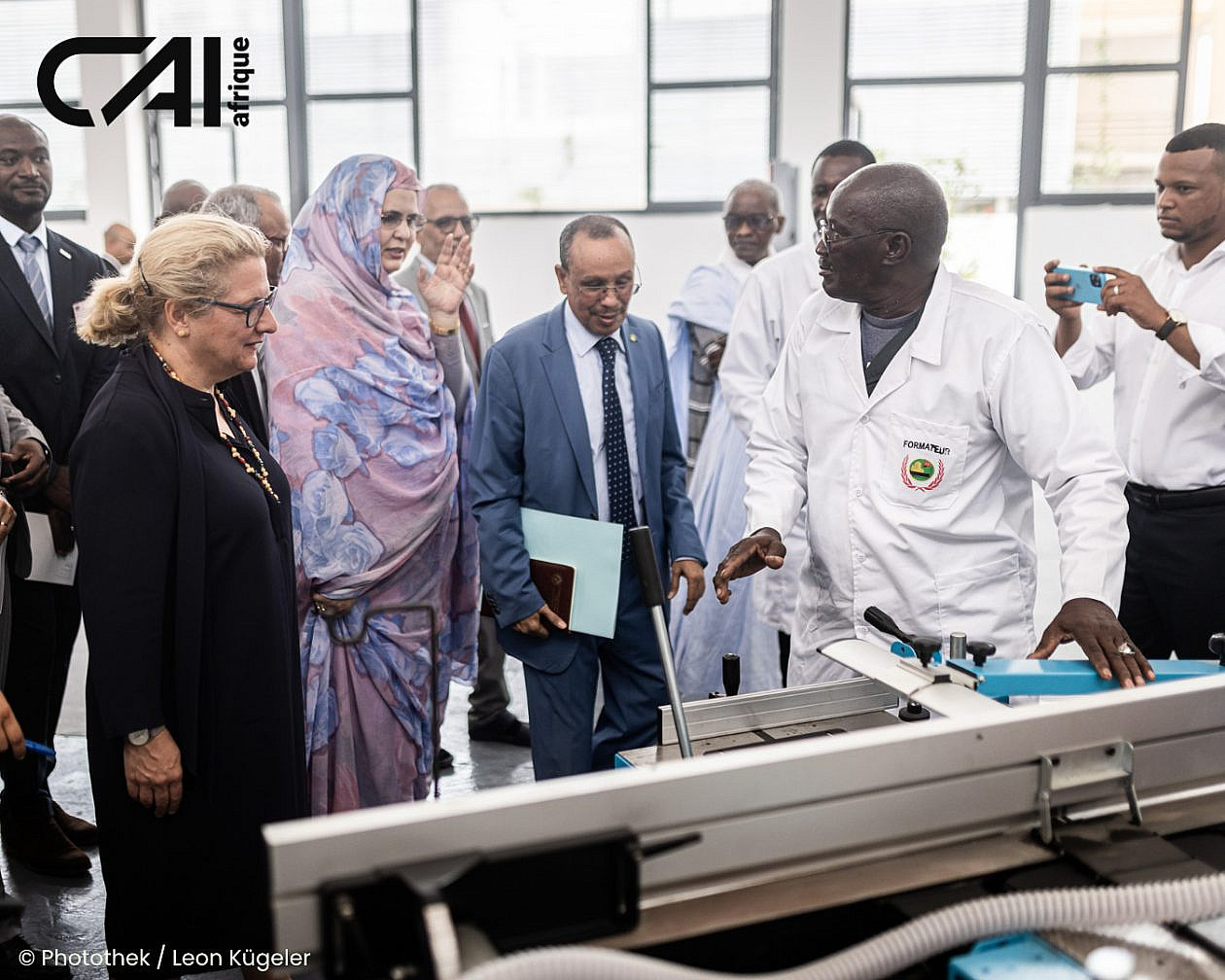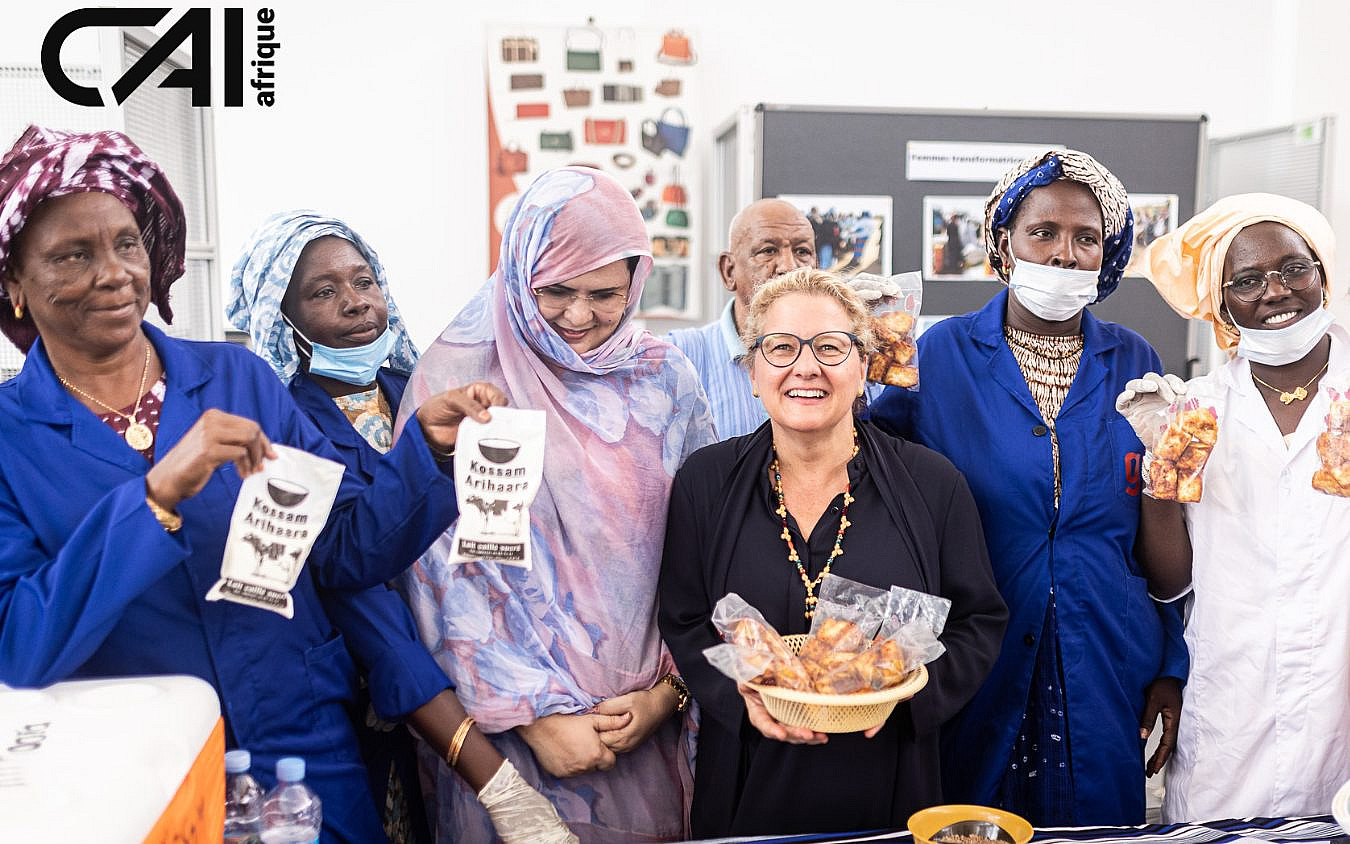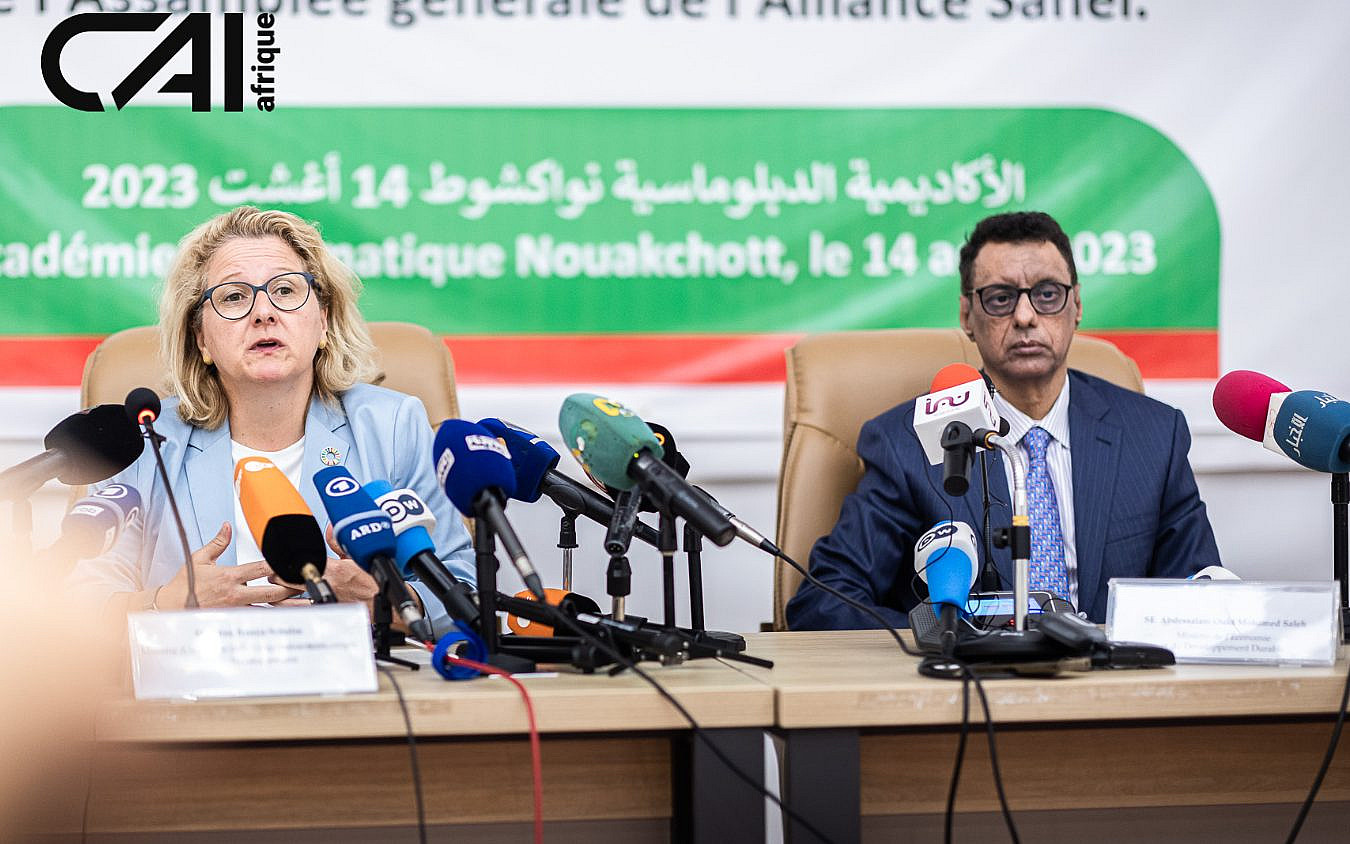Visit to Mauritania by the Minister for Economic Cooperation and Development of the Federal Republic of Germany
On 14 and 15 August 2023, the Islamic Republic of Mauritania received a visit from Ms Svenja Schulze, Minister for Economic Cooperation and Development of the Federal Republic of Germany and President of the General Assembly of the Sahel Alliance.


The visit provided an opportunity for high-level meetings, project visits and fruitful discussions, underlining the two countries’ renewed commitment to strengthening their strategic partnership. During talks with the Mauritanian authorities and partners, Minister Schulze addressed the issues of youth employment, food security and social protection. These subjects echo the priorities of the German presidency of the Sahel Alliance presented a few weeks ago in Nouakchott.
“I am delighted to be back in Mauritania after my first visit in July on the occasion of the General Assembly of the Sahel Alliance“, said Minister Schulze, “Recent developments in the Sahel have once again made it clear that we need solutions that tackle the root causes of the region’s problems. I have discussed with members of the government and project partners how we can best provide support here“.
During her stay, the Minister and her delegation had the opportunity to visit several key initiatives in the development sector led by Mauritanian institutions and supported by Alliance members.
Fishing, an economic and resilience driver
One of the first stops was a visit to the Padem project (Sustainable Artisanal Fishing in Mauritania), which has been awarded the Sahel Alliance label. This is an initiative aimed at strengthening food security and community resilience. The Minister was able to visit the port of Nouakchott and the artisanal fish market, important places for many Mauritanians.
Fishing is one of Mauritania’s major economic levers, contributing up to 50% of the value of exports each year. Around 80% of the total catch in Mauritanian waters consists of small fish species. These are a beneficial source of protein, vitamins and essential micro-nutrients for the population of Mauritania and West Africa.
The Minister expressed her satisfaction with the concrete results of this project and praised the efforts made to improve technical fishing conditions and to bring the entire value chain up to hygiene standards.
The BMZ delegation also visited the activities of the Pro Nexus project*, which has been awarded the Alliance Sahel label. Comprising a joint team of GIZ and UNHCR staff, this project supports the local implementation of the Global Compact on Refugees (GCR). During the visit, the German delegation spoke to refugees and asylum seekers to gain a better understanding of the challenges they face. The visit was also an opportunity to discover the income-generating activities promoted by the project (crafts, processing of local products, manufacture of jewellery and accessories).

Education, a priority for the future of young people
A major part of Mrs Schulze’s visit was devoted to one of the priorities of the German Presidency of the Sahel Alliance: education and vocational training.
To this end, the German Delegation travelled to the commune of Ryadh to visit the School of Technical Education and Vocational Training for Buildings and Public Works supported by several members of the Alliance. The Minister was able to see:
- the wide range of training on offer
- the increase in intake capacity to almost 2,000 young people a year
- the availability of training facilities that meet international standards and norms to help young people enter the job market.
She stressed the importance of investing in education to shape a promising future for Mauritania’s youth.
At the press conference held at the end of the visit, the Minister for the Economy and Sustainable Development, Abdsalam Mohamed Saleh, welcomed “the vision expressed by Minister Schulze (to) improve the living conditions of the populations of the G5 Sahel countries in an effective and sustainable manner“.
Its implementation, around priorities centred on employment, climate change and food insecurity, will help to improve the delivery of essential services in Mauritania and the region, particularly in the fields of health and education, the Minister also pointed out.
This visit confirmed the commitment to work together for sustainable development and greater stability in the region.

* HDP nexus is the term used to capture the interlinkages between the humanitarian, development and peace sectors. It specifically refers to attempts in these fields to work together to more effectively meet peoples’ needs, mitigate risks and vulnerabilities, and move toward sustainable peace.
Written by Mohamed Djigo
Go further

